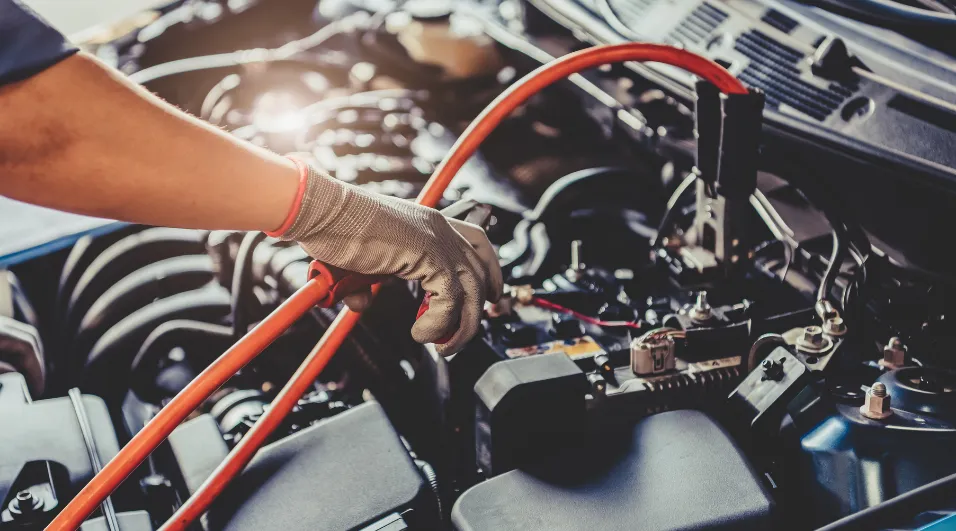Maintenance of Electric Cars: What You Need to Know

Anúncios
The Maintenance of Electric Cars differs significantly from traditional gasoline vehicles, offering both simplicity and unique challenges.
As EVs dominate roads globally, understanding their upkeep ensures longevity, performance, and cost savings.
Unlike combustion engines, electric vehicles (EVs) eliminate oil changes, spark plugs, and exhaust systems—but they introduce new considerations like battery health, software updates, and specialized cooling systems.
Anúncios
This guide dives deep into EV maintenance, debunking myths, highlighting key tasks, and providing expert insights to keep your electric car running smoothly.
Familiarizing yourself with these maintenance requirements can lead to a more enjoyable driving experience.
As electric vehicle technology continues to advance, staying informed will help you make the most of your investment.
Why EV Maintenance Is Different (and Often Cheaper)
Electric cars have fewer moving parts than internal combustion engine (ICE) vehicles.
A study by Consumer Reports found that EV owners spend 50% less on maintenance over the vehicle’s lifetime.
Here’s why:
- No oil changes – EVs skip this frequent ICE requirement.
- Regenerative braking reduces wear on brake pads.
- Simpler drivetrains mean fewer components to fail.
However, Maintenance of Electric Cars isn’t zero.
Key areas like battery care, tire wear, and software management demand attention.
Understanding these differences can help you budget more effectively for your vehicle’s upkeep.
Additionally, the lower maintenance costs associated with EVs can contribute to significant savings over the life of the vehicle.
+ How to Save on Car Maintenance Without Compromising Quality
Critical EV Maintenance Tasks
1. Battery Health: The Heart of Your EV
The battery pack is the most expensive component, and proper care extends its life.
- Avoid extreme charging habits – Frequent fast charging (DC) can degrade batteries faster.
- Keep charge between 20%-80% for daily use to reduce stress.
- Monitor temperature – Extreme heat or cold affects performance.
Table 1: Estimated Battery Lifespan Based on Usage
| Usage Pattern | Estimated Lifespan |
|---|---|
| Regular (20%-80% charge) | 10-15 years |
| Frequent Fast Charging | 8-12 years |
| Extreme Weather Exposure | 7-10 years |
Regularly checking your battery health can help you catch potential issues early.
Using a battery management app can provide real-time insights into your battery’s condition and charging habits.

2. Tire Maintenance: EVs Wear Tires Faster
Heavy battery packs and instant torque increase tire wear.
- Rotate tires every 6,000-8,000 miles to ensure even wear.
- Opt for EV-specific tires designed for added weight and efficiency.
Regular tire maintenance not only prolongs tire life but also enhances driving safety.
Monitoring tire pressure is equally important, as under-inflated tires can lead to increased wear and reduced efficiency.
3. Brake System: Less Wear, But Still Important
Regenerative braking reduces friction brake use, but:
- Check brake fluid every 2 years.
- Inspect pads annually (though replacements are rare).
Understanding how regenerative braking works can help you appreciate its impact on maintenance.
This system not only saves energy but also contributes to lower brake wear, making it an essential feature of EVs.
4. Cooling Systems: Keeping the Battery in Check
EVs rely on liquid cooling to manage battery temperature.
- Check coolant levels every 30,000 miles.
- Look for leaks – A malfunctioning system can overheat the battery.
Maintaining optimal battery temperature is crucial for performance and longevity.
Investing in a good cooling system can prevent costly repairs down the line and ensure efficient operation.
5. Software Updates: The Digital Tune-Up
Unlike traditional cars, EVs receive over-the-air (OTA) updates improving performance, efficiency, and features.
- Enable automatic updates when possible.
- Visit a dealership for major recalls or hardware fixes.
Keeping your software updated can enhance your driving experience by introducing new features and improvements.
Regular updates can also improve safety by addressing any potential vulnerabilities in the system.
++ How to Clean Your Car’s Interior Like a Pro (Without Ruining the Upholstery)
Debunking EV Maintenance Myths
Myth 1: “EVs Don’t Need Any Maintenance”
While simpler, they still require checks on tires, brakes, and cooling systems.
Neglecting these areas can lead to more significant issues down the road.
Regular maintenance checks can save you from costly repairs and ensure your vehicle remains in top condition.
Myth 2: “Batteries Die Quickly”
Most EV batteries retain 80% capacity after 100,000+ miles, per Geotab’s 2020 study.
With proper care, your battery can last well beyond its expected lifespan.
Understanding battery technology can help dispel myths and encourage responsible usage.
Myth 3: “Home Charging Damages the Battery”
Level 2 (240V) home charging is perfectly safe if used correctly.
Using a quality home charging station can ensure efficient and safe charging practices.
Educating yourself on best charging practices can help maximize your battery’s lifespan.

Cost Comparison: EV vs. Gasoline Car Maintenance
Table 2: 5-Year Maintenance Cost Estimate
| Service | EV Cost | Gas Car Cost |
|---|---|---|
| Oil Changes | $0 | $500 |
| Brake Pads | $50 | $300 |
| Engine/Fluid Checks | $100 | $400 |
| Battery Checks | $200 | $0 |
| Total | $350 | $1,200 |
As you can see, the cost savings associated with EV maintenance can be substantial.
These savings can be reinvested into other aspects of vehicle ownership, such as upgrades or additional features.
When to Visit a Specialist
Not all mechanics are EV-certified.
Seek a technician experienced in:
- High-voltage systems
- Battery diagnostics
- EV-specific software tools
Finding a certified EV specialist ensures your vehicle receives the best care.
Their expertise can help diagnose issues that may be overlooked by traditional mechanics.
For more information on electric vehicle maintenance, visit Plug In America.
The Future of EV Maintenance
As technology evolves, predictive AI could alert drivers before issues arise.
Meanwhile, understanding Maintenance of Electric Cars today ensures optimal performance tomorrow.
Staying updated on advancements in EV technology can help you adapt to new maintenance practices.
Being proactive about maintenance can lead to a longer-lasting, more efficient vehicle.
Final Tips for EV Owners
- Follow the manufacturer’s schedule.
- Use certified service centers.
- Stay updated on recalls.
Electric vehicles simplify ownership but require informed care.
By mastering these essentials, you’ll maximize efficiency, safety, and savings—keeping your EV on the road for years to come.
This resource offers valuable insights and tips for EV owners looking to enhance their vehicle’s performance and longevity.
